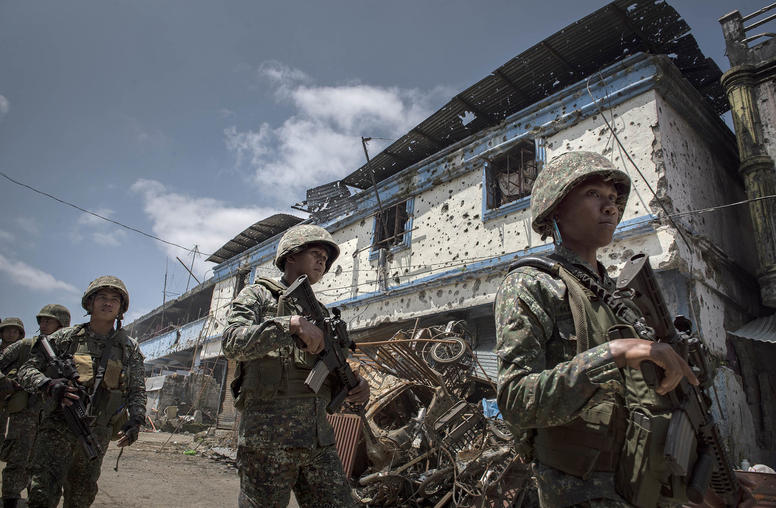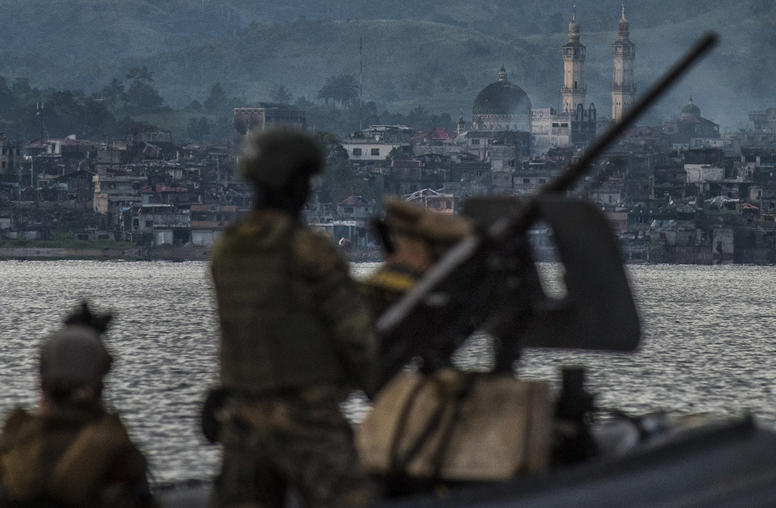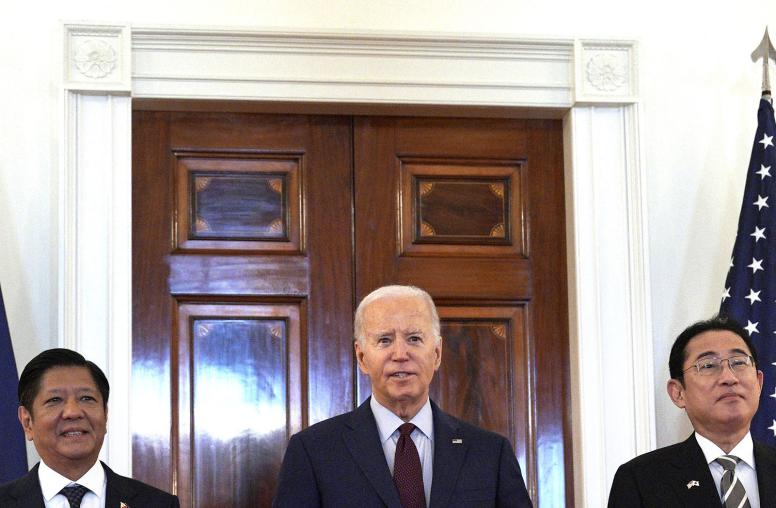Publications
Articles, publications, books, tools and multimedia features from the U.S. Institute of Peace provide the latest news, analysis, research findings, practitioner guides and reports, all related to the conflict zones and issues that are at the center of the Institute’s work to prevent and reduce violent conflict.

The Cascading Risks of a Resurgent Islamic State in the Philippines
On December 3, militants placed a bomb amongst parishioners gathered for Catholic Mass on the floor of the Mindanao State University (MSU) gym in Marawi City. Minutes later, it detonated killing four and injuring dozens. The Islamic State (ISIS) claimed that its East Asia affiliate was responsible for the attack. After a year of heavy losses, many had hoped that the threat posed by pro-ISIS groups was dissipating. Unfortunately, the violence that has characterized the six weeks since the bombing suggests that the Islamic State East Asia (ISEA) is attempting a resurgence timed for a critical 16-month period for the Philippines. The stakes are very high.

The Long Road to Peace in the Southern Philippines
For four centuries, the Muslim-majority areas in the southern reaches of the Philippines have resisted domination by the capital Manila, whether its leaders were Spanish, American or Filipino. This dynamic has spawned insurgencies, glimmers of hope for peaceful coexistence and repeated disappointment — all amid endemic violence and poverty.

China Forces Myanmar Scam Syndicates to Move to Thai Border
While Myanmar has long been the chief venue for the criminal operations of Chinese-origin gangs in Southeast Asia, these organizations have always stood ready to move — internally or across borders — if their sources of protection dissolved. In recent months, the organized crime kingpins have once again faced a fraying safety net. This time, the cause is the weakening of Myanmar’s corrupt coup regime in the face of a rising, multi-front revolution and, perhaps more importantly, an aggressive push by China’s law enforcement authorities.

Sometimes the Good Guys Win: Guatemala's Kleptocracy Fights Back
Last year was a pivotal moment for Guatemala’s democracy. Longshot candidate Bernardo Arévalo rode popular anti-corruption fervor into a shocking second place finish in the first-round presidential polls, ultimately winning the presidency in the runoff. Since Guatemala transitioned to a democracy in the mid-1980s, the country has been wracked by increasingly pervasive corruption, perpetrated and perpetuated by venal elites.

For Peace in Africa, Boost Regional Blocs — Like West Africa’s ECOWAS
As the United States and international partners work to stabilize Africa’s Sahel region — and to prevent its warfare, violent extremism and armed coups from metastasizing into Africa’s densely populous and strategic Atlantic coast — the West African multinational bloc, ECOWAS, has proven its value in resolving crises and promoting stability. Yet, as global security threats have evolved, ECOWAS, like other multinational bodies, needs updated capacities to meet new challenges. International democracies’ most effective initiative to support West Africa’s stability would be to partner with West Africans to strengthen their vital regional community. A similar strategy is valid across Africa.

Mental Health and Violent Conflict: A Vicious Cycle
When we think about the damage wrought by war, we often think about the physical consequences such as injuries and destroyed infrastructure. However, the often-invisible mental scars left behind by war are no less important.

A Rising Philippines Faces a Crucial Year Ahead
By virtue of its geography alone, the Philippines is arguably Southeast Asia’s most strategically important country. Yet its actual influence has tended to lag its potential due to decades of socioeconomic struggle and internal instability, especially in its restive southern island of Mindanao. In recent years, however, the Philippines has rapidly emerged as one of the most consequential countries in the Indo-Pacific, driven in large part by President Ferdinand Marcos’ transformative policies on national security, defense and foreign relations.

The Indo-Pacific’s Newest Minilateral Emerges
Last week, Philippines President Ferdinand Marcos Jr. stepped foot in the Oval Office for the second time in a year. Joining Marcos this time was Japanese Prime Minister Fumio Kishida, the leader of the United States’ most important ally in Asia and, arguably, the world. The Philippines has long been among a second rung of regional allies, so this first-ever trilateral summit marks Manila’s entrance as a leading U.S. ally working to maintain order and prevent Chinese revisionism in East Asia.

China’s Alternative Approach to Security Along the Mekong River
Speaking about “the rise” or the “emerging role” of the People’s Republic of China (PRC) makes little sense these days. The country is no longer simply transforming in a major power, but rather has achieved a level of influence that many other major countries around the world perceive as a threat economically, politically and militarily.

Sometimes the Good Guys Win: Five Lessons from Guatemala’s 2023 Election
When Bernardo Arévalo won the presidency last year, it left Guatemala’s corrupt old guard reeling. Arévalo and his anti-corruption Semilla Movement posed a direct threat to the power of Guatemala’s “pacto de los corruptos” — an alliance of government officials, politicians, prosecutors, judges, party financiers, state contractors and some wealthy families. The pact mobilized to overturn the election results. But Guatemala’s civil society, backed by U.S. and broader international support, was able to uphold the elections and advance democracy in the Central American nation.